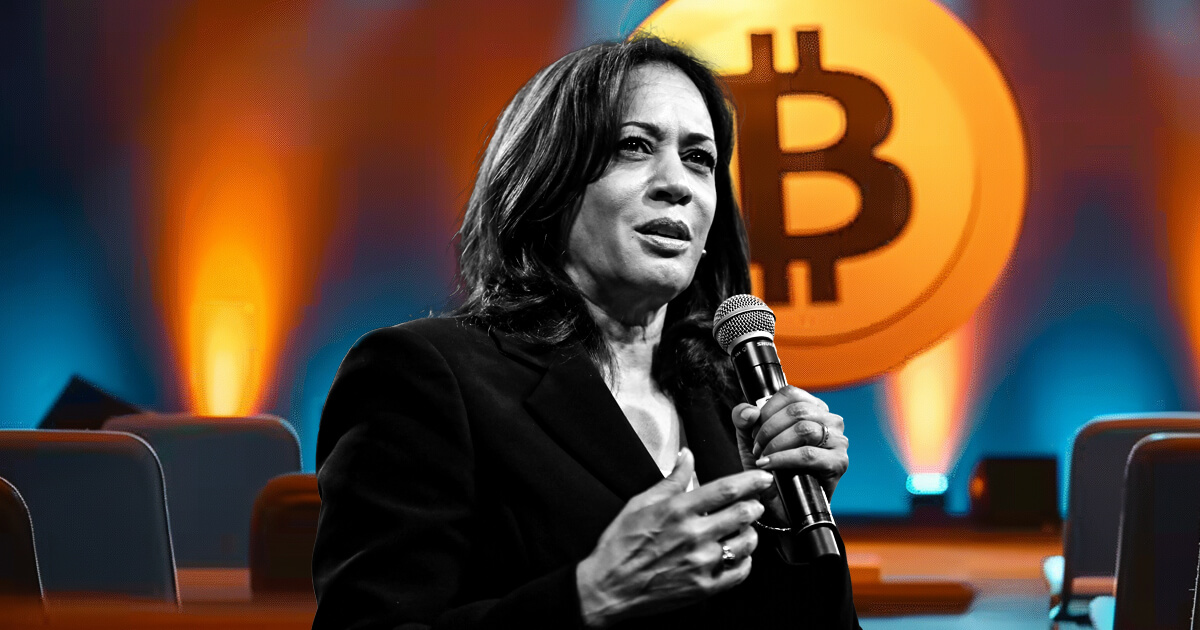Vice President Kamala Harris’ latest pivot to align with the crypto industry is unlikely to sway the crucial voter base in the upcoming US presidential election, Benzinga reported July 30, citing Bernstein analysts.
Reactive approach
In a bid to reset relations with the crypto sector, Harris has been actively reaching out to major firms in the industry. The initiative comes amid a noticeable shift in the political landscape, where digital assets are gaining bipartisan support.
However, Bernstein analysts are skeptical about the potential impact of Harris’ outreach. They argue that these efforts may not be enough to rival the substantial support former President Donald J. Trump has already secured within the crypto community.
According to Bernstein:
“Harris’s attempts to engage with crypto firms are noteworthy… [but] they may not be sufficient to alter the industry’s current leanings.”
Her recent engagements are seen as reactive rather than proactive, lacking the timely and significant policy changes needed to win over the industry.
The report highlighted that the Democratic Party’s regulatory stance has alienated many in the crypto sector, who now see the Trump administration as more favorable due to its clear pro-crypto policies.
Trump’s vocal support
Trump has garnered significant support from the crypto industry through a combination of pro-innovation rhetoric, deregulatory policies, and direct engagement with key figures in the sector.
His administration’s general support for free-market principles and lower corporate taxes resonated with the decentralized nature of cryptocurrencies.
Trump’s outreach to crypto companies and substantial donations from crypto-focused political action committees further cemented his position as a pro-crypto candidate — contrasting sharply with the Democratic Party’s perceived restrictive regulatory approach.
This multifaceted strategy has enabled Trump to build a strong base of support within the crypto community and helped him raise $25 million in funds during the Nashville Bitcoin 2024 conference last week, which he headlined as a keynote speaker.
Bitcoin Magazine CEO David Bailey noted that the amount represents the second-highest fundraiser his campaign has ever conducted. He also criticized Senator Elizabeth Warren for “talking the Democrats” into adopting an anti-crypto stance, which he argued has effectively ended their chances of winning the elections.
Financial clout
Bernstein’s analysis aligns with the rise of crypto-focused political action committees like Fairshake. The committee has raised over $200 million to support pro-crypto candidates since its inception, making it the largest Super PAC in the 2024 election cycle.
The industry’s financial influence is increasingly attracting the attention of politicians across the political spectrum.
Lee Reiners, a lecturing fellow at the Duke Financial Economics Center, told the newswire:
“The financial clout of the crypto industry is one reason for its growing influence in Congress. Politicians respond to incentives, and securing financial backing from this sector is crucial.”
Despite these developments, Bernstein remains cautious about Harris’ strategy and believes that while her campaign’s overtures to the crypto industry are a positive step, they may fall short without more concrete policy shifts and actions that address past grievances.
The sentiment is echoed by others, with Gemini founder Tyler Winklevoss expressing similar skepticism about Harris’ pivot. He said that the administration needs to do more than just talk to shift the public perception.



